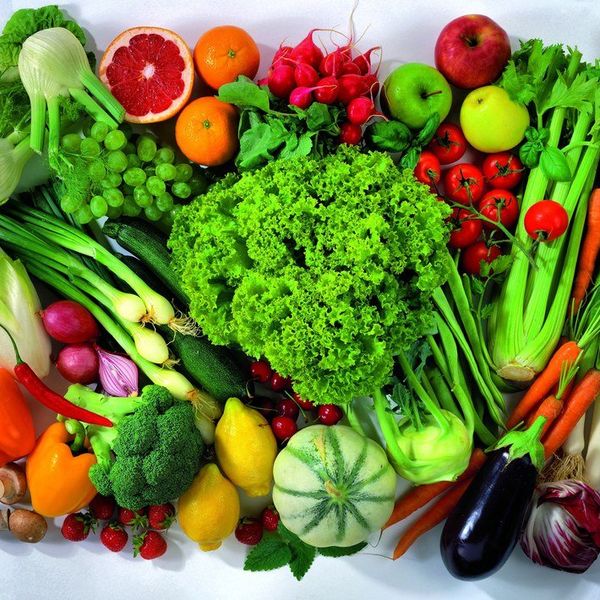No matter how "grass fed" or "humane" your mean labels say they are. Negative impacts of supporting the meat industry are tremendous. Currently, in the United States the meat industry raises 99.9 percent of chickens for meat, 97 percent of laying hens, 99 percent of turkeys, 95 percent of pigs, and 78 percent of cattle. This leaves a great (adj. of an extent, amount, or intensity considerably above the normal or average) impact on our world that can only be described as unnecessary and reckless. Along with being a chaotic and inhumane monopoly over the meat industry, factory farms are causing these three problems you probably don’t know about:
1. Human Rights
I'll just go ahead and start with the shocker. We are currently growing enough food to feed 10 billion people . And yet, starvation and malnutrition plague our world. This is because is takes much more resources to produce meat for human consumption. For example , worldwide, cows drink 45 billion gallons of water and eat 135 billion pounds of food each day.
Workers within factory farms, many of which are undocumented citizens, are constantly breathing in air that has been trapped in the tiny space with the hundreds of animals. According to the Food Empowerment Project, this is air that contains manure as well as harmful gasses such as hydrogen sulfide, ammonia, methane, and carbon dioxide. Methane is highly flammable and, when not ventilated properly from manure tanks, it can explode. The air also contains high levels of endotoxins, dust and other irritants that come from the cell walls of bacteria within the manure.
This bad air quality is hazardous to farm workers. Deaths by breathing in all of the toxicity do occur. And as many as 25% of workers experience chronic bronchitis, while nearly 70% will have acute bronchitis at some point during the year.
One source points out that, “the majority of production operations are exempted from direct OSHA regulation and as a result the medical surveillance that occurs in other industries often does not or at best, occurs sporadically in agriculture.”
So not only are these human rights violations happening, no one is trying to stop them. Further, these workers are raising animals to be killed and slaughtering them at a rate of one animal every 12 seconds. Imagine what that does to a person’s mental health! One former factory farm employee attests in the book Slaughterhouse: The Shocking Story of Greed, Neglect, and Inhumane Treatment Inside the U.S. Meat Industry:
“The worst thing, worse than the physical danger, is the emotional toll. If you work in the stick pit [where hogs are killed] for any period of time—that let’s [sic] you kill things but doesn’t let you care. You may look a hog in the eye that’s walking around in the blood pit with you and think, ‘God, that really isn’t a bad looking animal.’ You may want to pet it. Pigs down on the kill floor have come up to nuzzle me like a puppy. Two minutes later I had to kill them. … I can’t care.”
Environment
Farming animals requires the use of excessive amounts of water. It accounts for between 80% and 90% of United States water consumption. Which makes sense, considering it takes 2,500 gallons of water just to produce one pound of beef!
477 gallons of water are required to produce 1lb. of eggs; almost 900 gallons of water are needed for 1lb. of cheese and 1,000 gallons of water are required to produce 1 gallon of milk.
This production also causes extreme levels of pollution. According to Natural Resources Defense Council, “California officials identify agriculture, including cows, as the major source of nitrate pollution in more than 100,000 square miles of polluted groundwater. Animal waste contains disease-causing pathogens, such as Salmonella, E.coli, Cryptosporidium, and fecal coliform, which can be 10 to 100 times more concentrated than in human waste.”
As if all that wasn't bad enough, animal agriculture is the number one cause of species extinction, water pollution, habitat destruction, and ocean dead zones.
Animals
For me, the decision was easy. I wouldn’t ever kill an animal, so why would I eat one? But I understand that for some, it may take more than that.
In farms, animals are crowded indoors to prison-style plants, and bred to and past exhaustion. Animals are intensively confined in spaces so small they cannot turn around, extend their wings, or lie down comfortably, as in gestation crates, veal crates, and battery cages. Hens are systematically starved in order to artificially re-start their egg-laying cycles. In order to create milk, dairy cows are artificially impregnated and the calves are taken away from their mothers to be used in veal mere moments after birth, causing distress for both.
What can you do?
Educate yourself on the topic, so that whatever you are choosing for your lifestyle, you understand the consequences.
Not ready to take that step? Go for Meatless Mondays and save 133 gallons of water per day!





















